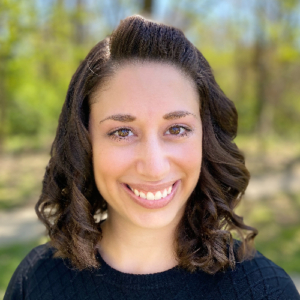The Body Project, Help Prevent Eating Disorders in Your Community
2019 was an important year for me! It marked my 10th year in recovery from an eating disorder, and it was the year that I discovered the Body Project. At that time, I was in my 8th year as a high school counselor. Over the years, I have worked with students battling eating disorders and provided support for them and their families, while also being their advocate through their recovery journey. I had run peer groups for my students, and all too often, the topic of body dissatisfaction emerged, where they expressed pressures to conform to an appearance ideal. These pressures were all around them…peers, family, social media, and the list goes on-and-on. I always felt like I needed to do more. I wanted to be able to support my students by providing early interventions and prevention programming. So, after a life-changing day in NYC attending the Body Project Facilitator Training, I knew this program was exactly what I was looking for.
The Body Project is a group-based intervention that provides a forum for high school girls to confront unrealistic appearance ideals and develop healthy body image and self-esteem. It has repeatedly been shown to effectively reduce body dissatisfaction, negative mood, unhealthy dieting and disordered eating. There is further evidence that the Body Project reduces the risk of future onset of eating disorders. This manualized intervention consists of written, verbal and behavioral exercises in which participants voluntarily critique our culturally promoted appearance ideal for women.1
Even in 2020, in the face of the pandemic, when schools around the globe went virtual, so did the Body Project. Students were stressed, overwhelmed, were experiencing a sense of loss and grief, and they were spending so much time on social media and on virtual learning platforms, and many teachers and staff were reporting students struggling to turn on those cameras … For some of my students this experience was only exacerbating their body dissatisfaction. So, in an effort to respond to the needs of my students and in collaboration with the National Eating Disorders Association, The Body Project went virtual. My students were dedicated and passionate about the program. In fact, in my years of providing group interventions, I have never seen more dedication to a program. As we closed out the virtual Body Project experience, I am happy to say that every one of them expressed that this program had a positive impact on their life, their confidence and body image had improved, the program affected their notion of societal appearance and beauty ideals, and they had started applying some of the lessons from the Body Project into their everyday lives, while also being dedicated to acts of body activism.
After running the program in my school several times, my belief in its mission grew, and I was thrilled to become a trainer for the program in 2020. Since then, I have run several Body Project trainings in collaboration with NEDA, and am truly honored to have had the opportunity to train hundreds of Body Project facilitators who have brought this program into their communities. My passion in working with this population grew, and I now serve as an Assistant Clinical Director in a residential eating disorders treatment program. Facilitating The Body Project changed my life, and the lives of my students. If you are passionate about prevention programming, consider bringing the Body Project into your school or community.
If you have an interest in bringing the Body Project to your community, please outreach to NEDA at info@myneda.org for more information!
1Ghaderi, A., Stice, E., Andersson, G., Enö Persson, J., & Allzén, E. (2020). A randomized controlled trial of the effectiveness of virtually delivered Body Project (vBP) groups to prevent eating disorders. Journal of Consulting and Clinical Psychology, 88(7), 643–656. https://doi.org/10.1037/ccp0000506
Rachel Curran is a Licensed Professional Counselor in NJ who specializes in eating disorders and co-occurring disorders. Prior to her current role, she was a School Counselor for more than 10 years. Rachel serves as a Trainer and Facilitator for The Body Project, and an Adjunct Professor at New York University. She received her Master of Arts in Counseling Services and Bachelor of Arts in Communications and Fine Arts from Rider University.





